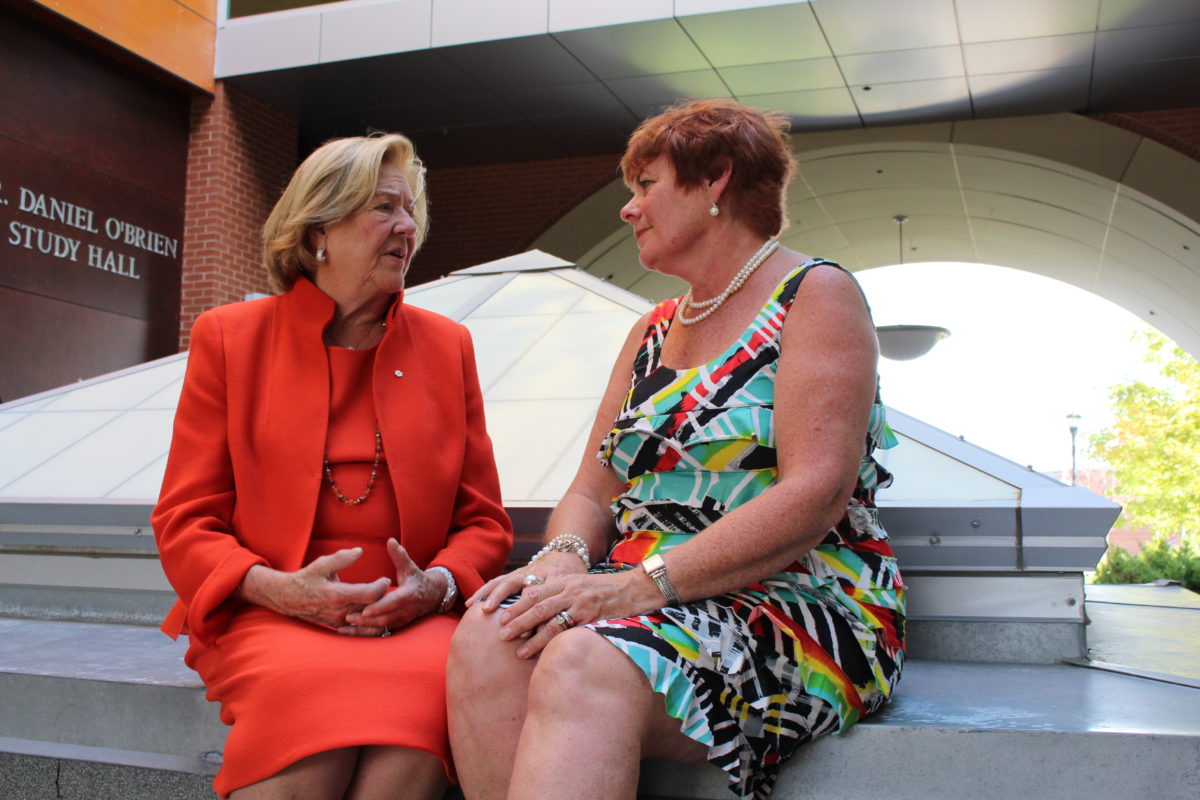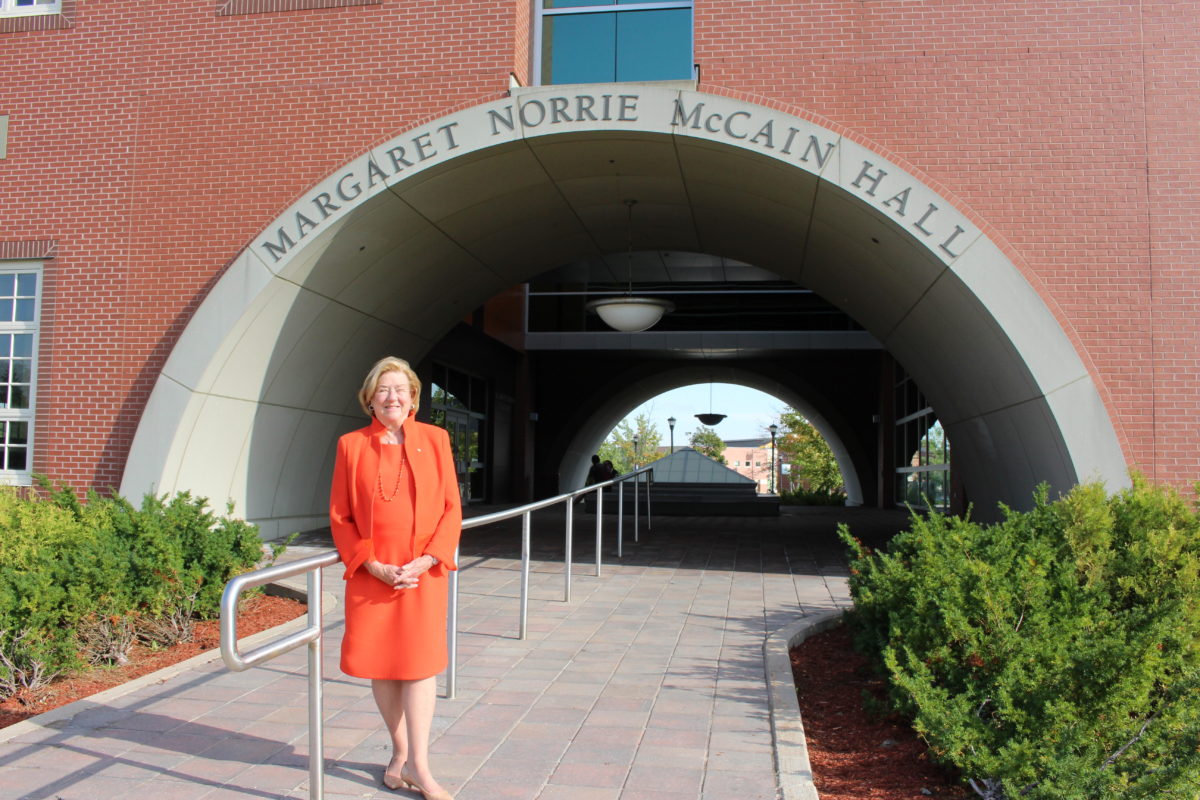Philanthropist and former lieutenant-governor of New Brunswick Margaret McCain advocated firmly for universal early childhood education as part of the Frank McKenna Centre for Communications and Public Policy’s distinguished speaker series. The lecture was held in Kinsella Auditorium on Sept. 27 at 7 p.m.
In an interview with The Aquinian, McCain described the current preschool system in Canada as “a patchwork quilt of quality and quantity.”
“What it boils down to really is rich kids get good preschool, poor kids get poor preschool,” she said.
That outlook has driven McCain to promote research and advocacy for early childhood education for decades. She and her late husband established the Margaret and Wallace McCain Family Foundation, which funds and supports education research and reform.
McCain said Canadian values include strong belief in the common good – which includes a fair playing field for early education.
“We believe everybody should have an equal opportunity,” McCain said. “No democracy can call themselves a democracy if they don’t provide those for their citizens.”
From family violence to early education

McCain’s work to support Canada’s youth began after she graduated with a social work degree from the University of Toronto. When awareness around family violence was increasing in the 1980s, she saw an opportunity to make a difference.
McCain chaired a campaign to endow a family violence research centre on the University of New Brunswick campus. Through that work, she came into contact with world-renowned medical doctor James Fraser Mustard.
“We realized that in order to combat violence, would have to go back to the very origins of a child – conception,” McCain said.
Mustard and McCain co-chaired the first of three studies in 1999, that was commissioned by the Ontario government.
McCain said that the provincial government never embraced the research, as it was too “anti-conservative for them,” but that didn’t prevent the findings from spreading.
“It took on a life of its own, and was embraced by the federal government, the United Nations and began to travel around the world,” she said. “It really made an impact, particularly in developing countries, but also Australia.”
The study and McCain’s public speaking across Canada resulted in the implementation of one year maternity and parental leave.
Challenges to universal implementation


McCain is opposed to alternative solutions such as government subsidies within the private “profit centered” preschool system, or an approach that targets vulnerable demographics.
She said expansion within the public school system allows for equal, high-quality care, consistency in curriculum and standards for staff. New Brunswick is stuck when it comes to making progress, McCain said.
“They’re still putting money into short term, politically palatable packages and programs that are not going to change the needle on literacy or learning,” she said.
The Gallant government recently announced the return of Grade One French immersion in the Anglophone school system, commencing this September.
McCain supports second language education, but is firmly opposed to the decision.
“You’re still feeding into a two-tier system,” she said. “No matter how you slice the meat, what has evolved is the brightest and best are going to French immersion and that leaves the rest of the kids underperforming.”
McCain said she doesn’t see any drawbacks to universal preschool nor does she consider the heavy emphasis on that aspect of the education system to be draining research and efforts from other parts.
“The facts aren’t as important as the fact that the brain has been prepared to be a healthy receptacle,” she said.
McCain’s current work
McCain is currently working with former Prime Minister Paul Martin’s non-profit organization, The Martin Aboriginal Education Initiative. New research shows that the Indigenous community was so damaged in the residential school system that stress and anxiety levels are still being passed down genetically.
The initiative is tracking the births and development of 50 babies, as part of efforts to try to find the key to breaking the cycle of intergenerational damage to Indigenous peoples.

